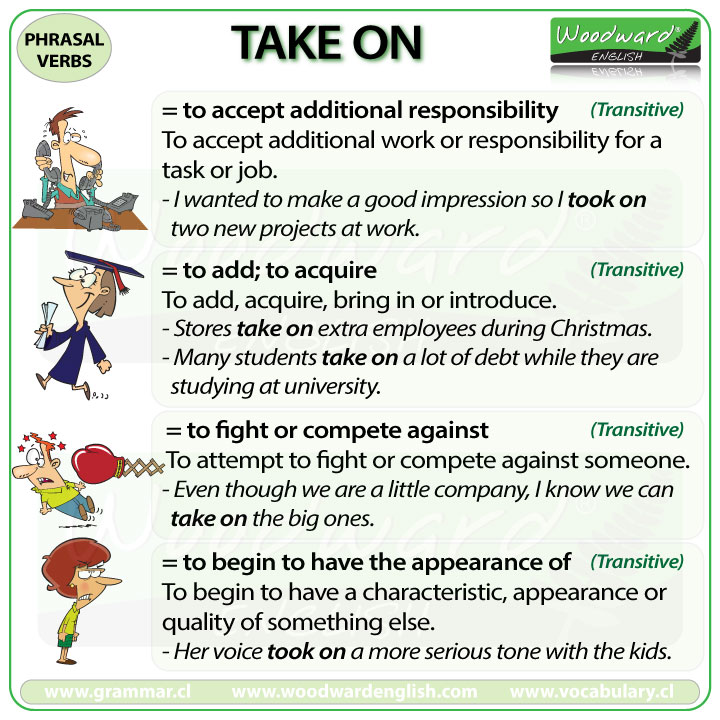The English phrasal verb TAKE ON has the following meanings:
1. Take on = to accept additional responsibility
(transitive) to accept additional work or responsibility for a task or job. To undertake a new role or responsibilities. Synonyms are undertake and acquire.
- I wanted to make a good impression, so I took on a lot of tasks at work.
- I will take on the project if you don’t want to.
- I have taken on too much work. Can you please help me finish this project?
- She decided to take on the role of project manager despite the tight deadlines.
2. Take on = to add; to acquire
(transitive) to acquire, bring in, add or introduce.
- Stores often take on extra employees during the Christmas season.
- The boat was taking on water, so we had to plug the hole.
- The teacher has some spots in her classroom and can take on a few more students.
- Many students take on a lot of debt while they are studying at university.
- The company took on fifty new employees to handle the increased workload.
3. Take on = to fight or compete against someone
(transitive – informal) to attempt to fight or compete against someone. To challenge someone.
- Even though we are a small company, I know we can take on the big ones.
- The boxer challenged his opponent to take him on in the ring.
- Do you want to take me on? Come on then!
- The new team is eager to take on the champions in the next match.
4. Take on = to begin to have the appearance of
(transitive – informal) to begin to have a characteristic, appearance or quality of something or someone else.
- Her voice took on a more serious tone with the children.
- The doll took on a scary appearance in the dark.
- It didn’t take long for the outdoor furniture to take on an old rustic look from being in the sun all of the time.
- The building took on an eerie look as night fell.
Take on – Summary Chart

